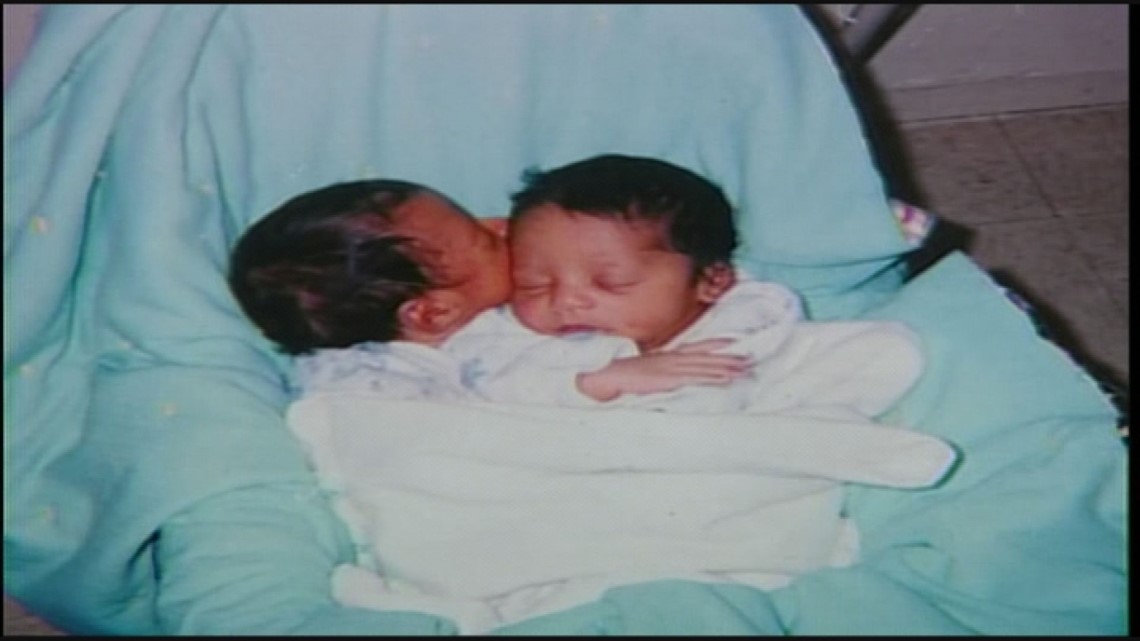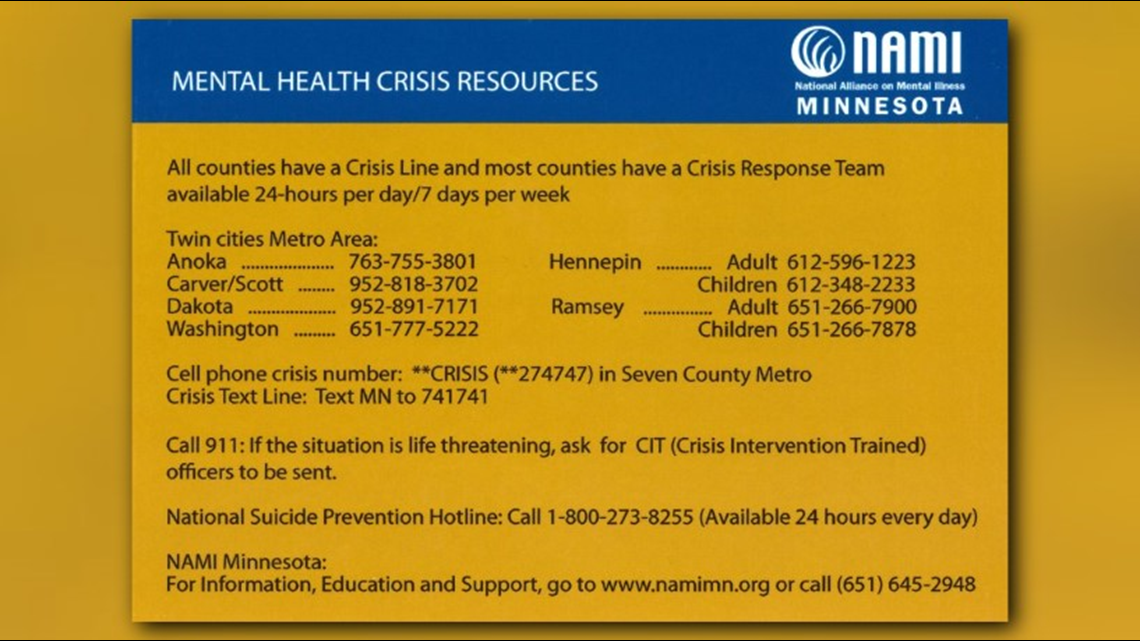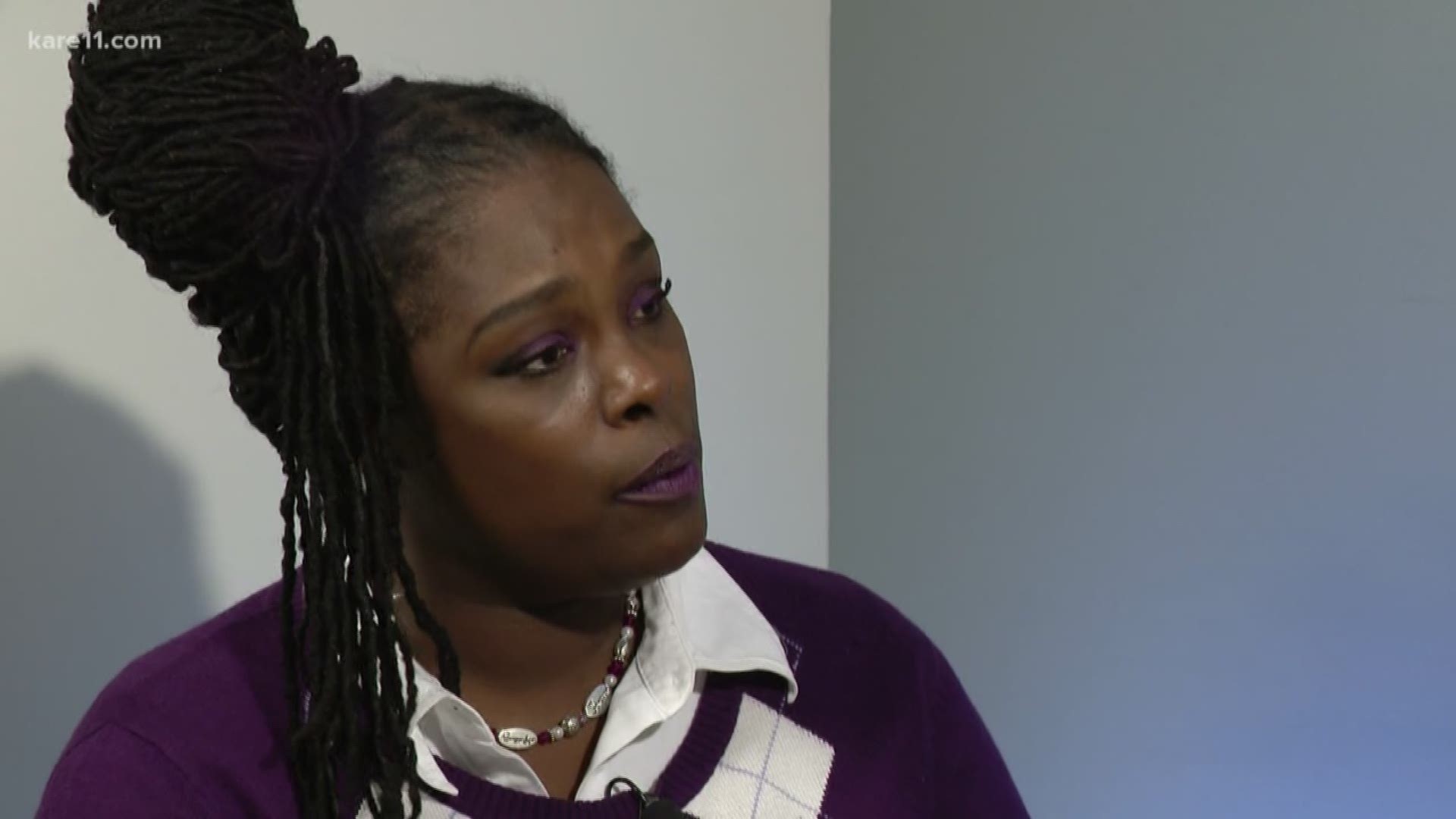ST. PAUL, Minn. - A Minnesota mother tried to end the lives of her twin boys by tossing them off a bridge into the Mississippi River.
One child survived, the other died.
Fifteen years later, Naomi Gaines is using her painful story to raise awareness about mental illness and the help available.
Gaines was convicted of second-degree murder and second-degree attempted murder. She spent 15 years in prison, including time at a mental health treatment facility. After the incident, Gaines was diagnosed with postpartum psychosis, bi-polar and schizoaffective disorder.
Postpartum psychosis occurs in about one to two out of every 1,000 deliveries. Gaines is one example of communities of color facing unique challenges in accessing mental health treatment. One in five adults in the U.S. lives with mental illness.
“If there is another Naomi Gaines out there, you are not alone. Mental illness is not a character flaw. It is not a weakness to ask for help. It is a strength,” she said. “What I wouldn't give to go back and say, 'I am not OK, and I need help.'”


Now, she works part time at the National Alliance on Mental Illness (NAMI) in Minnesota. She focuses on educating communities, especially the African American one, about treatment for the illness. She also wants to eliminate the stigmas surrounding mental illness.
“When I mentioned 'I am depressed. I'm down.' (People said,) 'Oh girl, you a strong black woman you can take this,’” she said. “I wasn't allowed to not be happy."
Gaines wants to help others before they reach a breaking point and it’s too late.
“I got the most help for my mental illness while incarcerated," she said. "That is when the prevention classes, groups, therapy and medication happened, after it was already too late for my son."
Turns out, while in prison Gaines received a letter from the man that saved her and her son.
In part, he said, "You think I saved your life that day, but you saved mine. I was planning to jump, too."
Gaines says she hopes by sharing her story she will help save others.
All counties have a Crisis Line and most counties have a Crisis Response Team available 24 hours per day, seven days per week. You should call 911 if the situation is life threatening, ask for CIT or Crisis Intervention Trained officers to be sent. Below is a look at additional numbers to call for help.


You can text MN to 741741. In the metro from a cell phone people can call CRISIS.
If you would like to learn more about training or seminars, visit NAMI's education and awareness page.
Crazy, mental, nuts and psycho are words used to jokingly describe African Americans and others who live with mental illness.
And it's that kind of language stops people from seeking help.
The U.S. Department of health says ethnic minority groups in the U.S. are less likely to have access to mental health services.
Indeed, standing in strength is asking for help when you feel weak.
But who you ask is key.
Cynthia Fashaw runs the multicultural outreach program with the national Alliance on Mental Illness in Minnesota. She says many people of color reach out to churches.
And faith-based leaders are receiving training on proactive ways to help beyond prayer.
“What we need to do is start normalizing that discussion. We need to arm ourselves with what mental health looks like,” she said.
That includes talking about warning signs and what to do.
How do you have a conversation with someone displaying symptoms of mental illness?
“I am really concerned about you. This is what I am seeing. I am really worried how can I help you? Can I help you make a phone call? Let's call this crisis number they can come to us,” Fashaw said. “If there is somebody really affected by stigma you can text 24/7 and be connected to someone for mental health help.”

